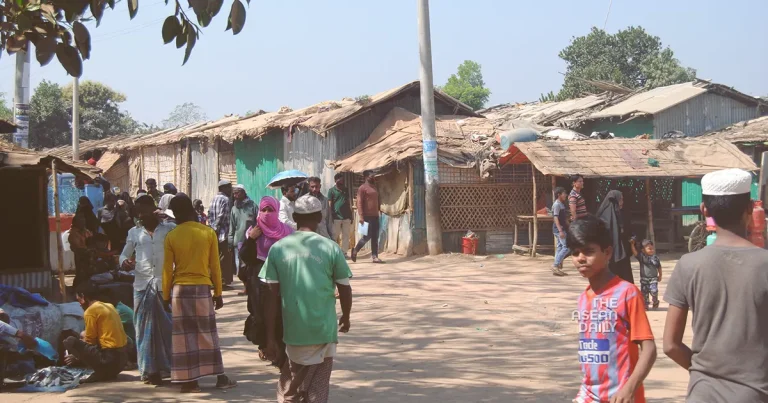18-10-2023 (DHAKA) The critical situation faced by Rohingya refugees in Bangladesh is in jeopardy due to the dwindling humanitarian aid, according to the UN’s refugee chief. Bangladesh currently hosts approximately one million members of this stateless minority, most of whom fled a military crackdown in Myanmar in 2017, which is now the subject of a genocide investigation at the International Criminal Court.
Frustration abounds regarding the lack of progress in a repatriation agreement, escalating lawlessness within the refugee settlements, and reductions in international humanitarian support. Filippo Grandi, the UN High Commissioner for Refugees, voiced concerns over the decline in humanitarian assistance amidst concurrent crises in Ethiopia, Sudan, Afghanistan, Ukraine, and Israel.
“This is a crisis that should not be forgotten… If contributions decline, we are in trouble,” Grandi emphasized. The funding for addressing the Rohingya crisis is currently at only 42% of the required US$875.9 million (RM4 billion) for this year.
Due to budget constraints, the UN World Food Programme has been forced to significantly reduce humanitarian aid to the Rohingya camps, resulting in monthly food rations of just US$8 (RM37.80) per refugee. Human rights organizations have expressed concerns over rampant malnutrition within the sprawling camps.
Grandi maintained that repatriation to Myanmar remains the primary objective, even though many Rohingya remain apprehensive about returning to a country where they are widely perceived as intruders from Bangladesh. A pilot program for repatriating a limited number of Rohingya is being developed collaboratively by Bangladesh and Myanmar, despite objections from rights groups who contend that conditions are not safe for their return.
Rohingya in Myanmar face significant challenges, as they are denied citizenship, access to healthcare, and require permission to travel outside their townships. Myanmar’s junta chief, Min Aung Hlaing, who served as the head of the army during the 2017 crackdown, has dismissed the term “Rohingya” as “imaginary.”
In the absence of viable repatriation options, “Plan B” is to maintain the status quo, with Rohingya continuing to reside in host countries. However, Grandi stressed that this is not a sustainable long-term solution. The situation facing the Rohingya remains precarious, and addressing this humanitarian crisis remains a pressing global concern.




